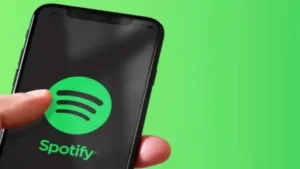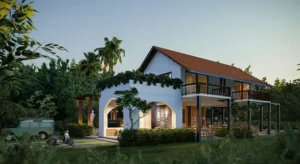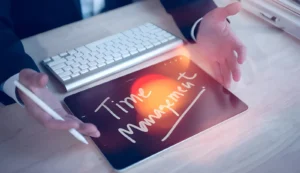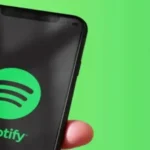Finding the right words to replace “meet and greet” can make your message sound warmer, more thoughtful, or more professional. Whether you’re hosting a business networking event, a casual get-together, or a welcome party, these 30 alternatives will help you express yourself with care.
What Does “Meet and Greet” Mean?
A “meet and greet” is a social or professional event where people come together to introduce themselves, build connections, and exchange ideas.
Is It Professional/Polite to Say “Meet and Greet”?
Yes, it is both professional and polite. However, in formal situations, you may prefer more refined alternatives to set the right tone.
Pros or Cons
Pros:
- Friendly and easy to understand
- Suitable for many contexts
- Encourages interaction
Cons:
- May sound too casual for high-level business events
- Overused in many invitations
Synonyms For “Meet and Greet”
- Introduction Session
- Welcome Gathering
- Networking Event
- Icebreaker Session
- Orientation Program
- Kickoff Meeting
- Social Hour
- Community Mixer
- Gathering
- Reception
- Orientation Session
- Introduction Round
- Welcome Reception
- First Meetup
- Open House
- Launch Event
- Familiarization Session
- Get-Together
- Meet-Up Session
- Town Hall
- Connection Event
- Opening Ceremony
- Welcome Party
- Inaugural Session
- Team-Building Activity
- Welcoming Session
- Kickoff Gathering
- Get-Acquainted Event
- Meet-and-Mingle
- Opening Session
1. Introduction Session
Scenario: Great for company orientations, conferences, or formal group introductions.
Examples:
- “We will start with an introduction session before the workshop begins.”
- “The introduction session allows everyone to know each other.”
- “Our onboarding program begins with an introduction session.”
Tone: Professional and formal.
Explanation: This alternative is perfect for structured environments where professional introductions are expected.
2. Welcome Gathering
Scenario: Suitable for casual or semi-formal events aimed at making people feel comfortable.
Examples:
- “We are hosting a welcome gathering for our new neighbors.”
- “The school arranged a welcome gathering for new parents.”
- “A welcome gathering was planned to greet our clients.”
Tone: Warm and inviting.
Explanation: This option emphasizes hospitality and friendliness, making it ideal for social occasions.
3. Networking Event
Scenario: Best for professional spaces where the goal is to make valuable connections.
Examples:
- “Join us for a networking event this Friday.”
- “The summit will begin with a networking event.”
- “Our company hosts a monthly networking event for professionals.”
Tone: Professional and purposeful.
Explanation: This phrase shows that the focus is on building professional relationships and exchanging ideas.
4. Icebreaker Session
Scenario: Perfect for training, workshops, or casual team-building activities.
Examples:
- “We’ll begin with an icebreaker session.”
- “The teacher planned an icebreaker session for students.”
- “Our event starts with an icebreaker session to ease the mood.”
Tone: Light and friendly.
Explanation: This phrase sets a casual and fun vibe, helping participants connect more naturally.
5. Orientation Program
Scenario: Common in schools, universities, or workplaces for newcomers.
Examples:
- “The university organized an orientation program for freshmen.”
- “Our company begins with an orientation program for new hires.”
- “The orientation program helps attendees adjust smoothly.”
Tone: Formal and educational.
Explanation: This phrase highlights a structured introduction, suitable for institutions and workplaces.
6. Kickoff Meeting
Scenario: Often used in business projects, campaigns, or events.
Examples:
- “We’ll start the project with a kickoff meeting.”
- “The team arranged a kickoff meeting to set goals.”
- “Every campaign begins with a kickoff meeting.”
Tone: Professional and motivating.
Explanation: This option adds energy and purpose, making it ideal for work-related introductions.
7. Social Hour
Scenario: Used for relaxed and casual networking or gatherings.
Examples:
- “Join us for a social hour after the seminar.”
- “We planned a social hour for our community members.”
- “The social hour was the perfect chance to connect.”
Tone: Relaxed and casual.
Explanation: A friendly way to describe informal mix-and-mingle events.
8. Community Mixer
Scenario: Ideal for neighborhood or community events.
Examples:
- “We’re hosting a community mixer this weekend.”
- “The community mixer brought together families and friends.”
- “Local leaders attended the community mixer.”
Tone: Inclusive and welcoming.
Explanation: This phrase emphasizes bringing people together in a casual and friendly way.
9. Gathering
Scenario: Works in both formal and informal contexts.
Examples:
- “The gathering will take place at the community center.”
- “We enjoyed a small gathering with close friends.”
- “A gathering was arranged for the new staff.”
Tone: Neutral and versatile.
Explanation: Simple and flexible, suitable for many occasions.
10. Reception
Scenario: Common for weddings, corporate events, or formal parties.
Examples:
- “The wedding reception was held at a banquet hall.”
- “We hosted a reception for our new clients.”
- “A reception followed the conference.”
Tone: Elegant and formal.
Explanation: Adds a touch of sophistication, often linked to ceremonial or business events.
11. Orientation Session
Scenario: A lighter, shorter version of an orientation program.
Examples:
- “The school arranged an orientation session for parents.”
- “We’ll hold an orientation session for new employees.”
- “The orientation session introduces attendees to our policies.”
Tone: Informative and formal.
Explanation: Focuses on helping newcomers get familiar with a system or organization.
12. Introduction Round
Scenario: Common in team meetings or small group gatherings.
Examples:
- “Let’s do an introduction round before starting.”
- “The teacher began class with an introduction round.”
- “Our team meeting included a short introduction round.”
Tone: Friendly but professional.
Explanation: Encourages quick, personal introductions in small groups.
13. Welcome Reception
Scenario: Often used in universities, companies, and cultural events.
Examples:
- “The college held a welcome reception for new students.”
- “We hosted a welcome reception for visiting delegates.”
- “Our welcome reception made guests feel comfortable.”
Tone: Warm and formal.
Explanation: Combines professionalism with friendliness, creating a respectful tone.
14. First Meetup
Scenario: Informal gatherings with friends, clubs, or online communities.
Examples:
- “We arranged a first meetup for our book club.”
- “The first meetup was casual but enjoyable.”
- “We’re excited about our first meetup.”
Tone: Casual and approachable.
Explanation: Works well for new groups or casual introductions.
15. Open House
Scenario: Used in schools, businesses, or real estate events.
Examples:
- “The university hosted an open house for prospective students.”
- “Our company is holding an open house next month.”
- “They organized an open house to showcase new services.”
Tone: Informative and inviting.
Explanation: Suggests a welcoming event where people can freely explore.
16. Launch Event
Scenario: Best for introducing products, services, or new initiatives.
Examples:
- “We invited clients to our launch event.”
- “The company hosted a launch event for the new app.”
- “A launch event kicked off the campaign.”
Tone: Exciting and professional.
Explanation: Perfect when the purpose is to present something new.
17. Familiarization Session
Scenario: Used in professional, academic, or training settings.
Examples:
- “The familiarization session helped new recruits adjust.”
- “We held a familiarization session for students.”
- “Employees joined a familiarization session before training.”
Tone: Informative and formal.
Explanation: A helpful choice for structured introductions.
18. Get-Together
Scenario: Informal, family, or friendly events.
Examples:
- “We planned a small get-together at our home.”
- “The get-together was full of laughter.”
- “We had a casual get-together with colleagues.”
Tone: Warm and casual.
Explanation: A relaxed way to describe social bonding moments.
19. Meet-Up Session
Scenario: Common in clubs, communities, or hobby groups.
Examples:
- “Our hiking group arranged a meet-up session.”
- “We scheduled a meet-up session for volunteers.”
- “The meet-up session was productive.”
Tone: Casual yet organized.
Explanation: Balances friendliness with some structure, good for communities.
Read More:30 Other Ways to Say ‘Please Advise’ (With Examples)
20. Town Hall
Scenario: Corporate or community events for open discussions.
Examples:
- “We’re having a company town hall next week.”
- “The mayor hosted a town hall for residents.”
- “Our CEO will address questions at the town hall.”
Tone: Formal and engaging.
Explanation: Used when the event’s focus is on sharing and listening.
21. Connection Event
Scenario: Suitable for professional or semi-formal networking.
Examples:
- “We arranged a connection event for small business owners.”
- “The connection event helped young leaders meet.”
- “Our firm hosts a connection event annually.”
Tone: Professional and purposeful.
Explanation: Highlights the goal of building connections.
22. Opening Ceremony
Scenario: Formal launch or start of an event.
Examples:
- “The opening ceremony marked the festival’s beginning.”
- “We held an opening ceremony for our office.”
- “The conference began with an opening ceremony.”
Tone: Ceremonial and formal.
Explanation: Best for official openings and celebrations.
23. Welcome Party
Scenario: Fun, informal social gatherings.
Examples:
- “We threw a welcome party for our exchange students.”
- “A welcome party was arranged for new employees.”
- “They enjoyed the welcome party.”
Tone: Fun and lively.
Explanation: Ideal for celebratory and casual events.
24. Inaugural Session
Scenario: Used for formal academic or business programs.
Examples:
- “The seminar began with an inaugural session.”
- “The inaugural session was led by the principal.”
- “Our training started with an inaugural session.”
Tone: Formal and respectful.
Explanation: A traditional choice for official beginnings.
25. Team-Building Activity
Scenario: Corporate or school events to strengthen relationships.
Examples:
- “The day started with a team-building activity.”
- “We planned a team-building activity for staff.”
- “The team-building activity encouraged collaboration.”
Tone: Fun yet professional.
Explanation: Shows focus on interaction and cooperation.
26. Welcoming Session
Scenario: Academic or workplace introductions.
Examples:
- “The welcoming session greeted all new students.”
- “We hosted a welcoming session for our interns.”
- “The welcoming session made everyone feel comfortable.”
Tone: Warm and formal.
Explanation: Balances professionalism with friendliness.
27. Kickoff Gathering
Scenario: Good for semi-formal group launches.
Examples:
- “Our campaign began with a kickoff gathering.”
- “The kickoff gathering was inspiring.”
- “We hosted a kickoff gathering for our team.”
Tone: Energetic and casual.
Explanation: A mix of informal gathering with purposeful start.
28. Get-Acquainted Event
Scenario: Helpful in schools, workplaces, or communities.
Examples:
- “We organized a get-acquainted event for freshmen.”
- “The get-acquainted event was a success.”
- “Our staff joined a get-acquainted event.”
Tone: Friendly and polite.
Explanation: Encourages building familiarity among participants.
29. Meet-and-Mingle
Scenario: Light, fun, and casual events.
Examples:
- “We held a meet-and-mingle for parents.”
- “The meet-and-mingle was relaxed and fun.”
- “Our office arranged a meet-and-mingle.”
Tone: Casual and fun.
Explanation: Informal, with emphasis on casual interactions.
30. Opening Session
Scenario: Used for conferences, seminars, and workshops.
Examples:
- “The opening session introduced the speakers.”
- “We began with an opening session for attendees.”
- “The opening session set the tone for the event.”
Tone: Professional and formal.
Explanation: Provides a clear start to an event with an official touch.
Conclusion
Finding the right alternative to “meet and greet” depends on your audience, setting, and tone. For casual occasions, phrases like “get-together” or “welcome party” work best. For professional spaces, “orientation session”, “networking event”, or “opening ceremony” are more polished. Using the right words makes your communication feel warm, thoughtful, and appropriate.

Emma Rose is a dedicated writing expert with a passion for helping others enhance their communication skills. With a strong background in grammar, language structure, and style, Emma empowers individuals to write with clarity, confidence, and impact. Her approach combines a keen attention to detail with a supportive, personalized touch, ensuring each person she works with improves and grows in their writing journey.













